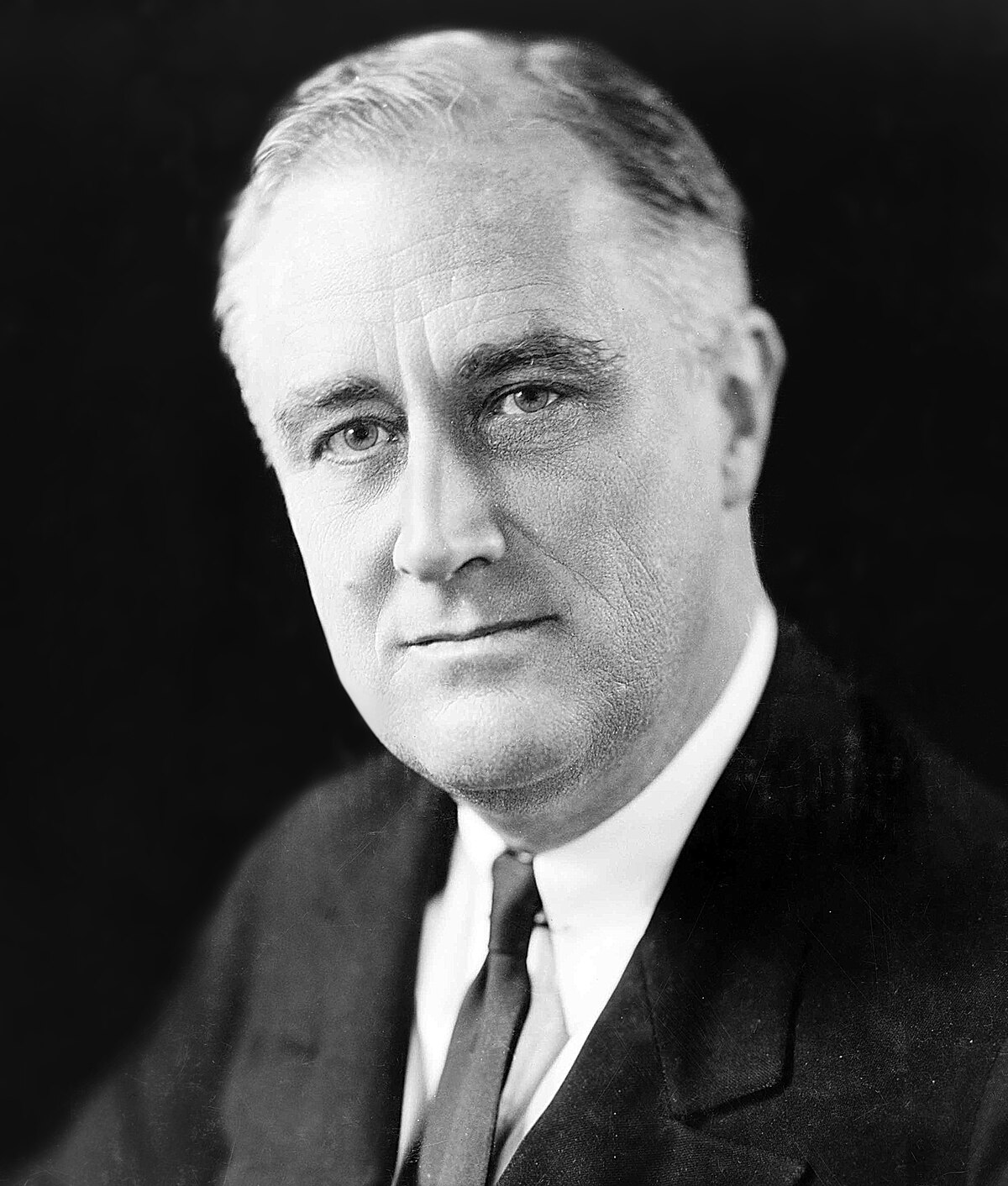The Common Carrier
Posted on February 6, 2015

"FDR in 1933" by Elias Goldensky (1868-1943) - This image is available from the United States Library of Congress's Prints and Photographs division under the digital ID cph.3c17121.Licensed under Public Domain via Wikimedia Commons.
In English common law, a common carrier transports products or people from one place to another.
In America, that evolved from products and people to include telephonic and radio communications.
Under the common carrier principle, the Congress and President Roosevelt established the Federal Communications Commission in 1934.
The world of radio and broadcast was rapidly evolving, even as the country was plunging into Depression, and like any government entity, the Roosevelt Administration felt it needed to exert greater control.
FDR was the first President to use extensively radio as a communications device, and it became clear that the power of this new technology required government oversight (especially to those in government).
Like all government entities, the FCC has grown in influence, power, bureaucracy and budget over the years. In this electronic world we live in, this independent agency regulates almost everything the American people do every day, from the programming they watch on television, to the information they glean from the Internet, to music they listen to on the radio, and well beyond.
The FCC has more power to act when the Congress is divided. Like other Federal agencies, it usually asks for forgiveness rather than ask the legislative branch for permission.
About the only thing that can stop it from acting is the Federal courts. And when it comes to the courts, where controversial issues are usually resolved, the FCC has only a mixed record. It loses more than it wins.
The Commission is expected to vote on a proposal put forth by its Chairman, Tom Wheeler, to define Internet services as a “common carrier.”
This means that Internet Service Providers (the companies that give you your access to the web, like Comcast and Verizon) would face a whole slew of regulations under Title II of the Communications Act of 1934.
The Chairman did this at the urging of President Obama and netizens of the left, who are afraid that the big ISP’s wouldn’t provide the normal Joes of the world decent internet access.
The President and his allies don’t believe that broadband providers ought to be able to provide differential service based on price. They believe that Internet Service is a utility, like the phone line or the gas line. Everybody should get the same service. You don’t pay more to get a clearer phone line or to get constant electricity service.
Of course, the Internet is different than the electricity or phone service.
You can already pay more to get more faster service, in hotels, in business and at home.
Some people don’t necessarily care how fast their download speeds or don’t have the resources to pay for faster speed. Other folks (especially businesses) are willing to pay for First Class Service.
In fact, this new mandate is like if the Federal government decided to abolish First Class as a service option in air travel, because it is unfair to the poor suckers who have to sit in the back of the plane.
I have some clients who are interested in this issue, in full disclosure, and they don’t like the President, er, I mean, the Chairman’s decision.
Congressional Republicans certainly don’t like this massive intrusion into the marketplace, and they are likely to try to find ways to stop it.
Congressional Democrats have been intimidated by the netroots people and they will likely back the President and the FCC, which makes it all the more difficult for Republicans to be able to fight back.
Like many other big FCC decisions, this will likely be settled by the Supreme Court.
I am not a constitutional lawyer, so I have no idea how it will decide. But my guess is that they will see it as a Constitutional over-reach.
Congress should be the one to determine if the Internet is mere utility or if it is a vibrant and ever-evolving job creator that is best left unshackled by an “independent” agency that was first created in FDR’s first term as President.
